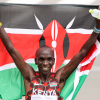Surgeons in heels: The women defying medicine's ultimate gender barrier

As a severe shortage of medical professionals grips the African continent, a transformative movement is taking shape in Kenya's operating rooms.
Women surgeons, who have long faced underrepresentation and gender biases, are challenging the status quo and spearheading new standards of care, offering a beacon of hope for millions of Africans in dire need of surgical interventions. The stories of these pioneering women are marked by resilience, unwavering determination, and a profound commitment to serving their communities. Sub-Saharan Africa faces a staggering healthcare crisis, with over 90% of its population lacking access to essential surgical services.
This scarcity is exacerbated by a severe shortage of surgeons, with only 0.5 practitioners per 100,000 people, a stark contrast to the 38 surgeons per 100,000 individuals in high-income nations. This deficiency not only perpetuates preventable suffering and mortality but also hinders economic development and social progress. At the recent Pan-African Surgical Conference in Kigali, experts presented a stark portrayal of the continent's surgical capacity, describing it as "alarmingly underdeveloped" and highlighting the numerous obstacles faced by women aspiring to enter the field.
Women surgeons in Africa face multifaceted challenges, ranging from deeply ingrained cultural expectations and societal biases to a lack of mentorship opportunities and institutional support. In a profession traditionally dominated by men, women often encounter scepticism, discrimination, and subtle forms of resistance that can impede their career advancement and limit their ability to reach their full potential. Despite these obstacles, a growing number of women are defying the odds and carving out successful careers in surgery, demonstrating exceptional skill, leadership, and compassion.
Emerging evidence suggests that female surgeons may, in fact, deliver superior patient outcomes compared to their male counterparts. A comprehensive review analysing over 5 million patients, published in the National Library of Medicine, revealed a 7% lower mortality risk associated with female surgeons, while the British Journal of Surgery reported fewer postoperative complications in teams with a higher proportion of women.
Recognising the urgent need for change, organisations like Women in Surgery Africa and the Kenya Association of Women Surgeons are actively working to create pathways for aspiring female surgeons, providing mentorship, networking opportunities, and advocacy to address the systemic barriers they face. Among the remarkable women leading this transformation in Kenya are Dr. Faith Odwaro, Dr. Anisa Mburu, and Dr. Yvonne Olwang', each with a unique story of perseverance, dedication, and a profound commitment to improving the lives of their patients.
Dr Faith Odwaro
Dr. Faith Odwaro's path to medicine was forged in the crucible of personal loss. At the age of 15, she became a caregiver for her father, the late Rev. Hosea Mazira Odwaro, as he battled leukaemia. The sterile corridors of hospitals in Kenya and Canada became her unexpected classrooms, and her father's suffering, her poignant syllabus. Her journey into medicine commenced in 2004 when she gained admission to Kharkov State Medical University in Ukraine, later transferring to Odessa State Medical University (now Odessa National Medical University), where she graduated in 2009.
"I transferred from Kharkov in my fifth year of medical school. The cold there was intense, and after recovering from health issues, I was relieved to have the chance to move south. Changing universities, especially in the later years, isn't easy, but I quickly fell in love with my new home. And it loved me back. Odessa wasn't just warmer—it was vibrant, cosmopolitan, and full of wonderful people.”
Though medicine had always been her calling, it was Dr. Nicholas Tinega, a renowned surgeon and mentor, who illuminated her path to surgery during her internship at Mbagathi Hospital in Nairobi, where she later served as a medical officer in the surgical department. At Odessa, she flourished academically while simultaneously navigating the challenges of new motherhood, a testament to her resilience and the supportive environment offered by Ukraine's healthcare system. Returning to Kenya, Dr. Odwaro confronted the pervasive gender biases that plague the medical profession.
"In rural Kenya, people often assume the man is the doctor," she explains, recounting instances where patients would address her husband, a hospital volunteer, as "daktari" (doctor) while referring to her as "sister," a common term for nurses. To dispel these misconceptions, she ingeniously began showcasing videos of herself performing endoscopy and surgeries in the hospital lounge, allowing patients to witness her expertise firsthand.
Language posed another hurdle. Though born in Vihiga, her native Maragoli was rusty. Today, thanks to encouragement from local widows she works with, she confidently conducts medical consultations in the language, bridging the gap between doctor and patient and fostering trust and understanding.
Dr. Odwaro's contributions extend far beyond the operating room. Even before graduating, she established the Mazira Foundation in 2006, a testament to her unwavering commitment to community service. Upon her return from graduation in 2009, the foundation launched several health initiatives in Vihiga, including the Mazira Memorial Hospital in Chavugami, Majengo, which provides vital services, most notably life-saving endoscopy procedures.
Her tireless efforts have earned her the prestigious Harvard PGSSC Global Surgery Frontline Award and an Emerging Leaders Foundation Health award. Through her foundation, she provides free healthcare to widows while advocating for policy changes to support marginalised groups. Recognising the critical gap in endoscopy services in the region, the hospital launched a regional endoscopy training program for physicians in February 2025, in partnership with the Roeya Institute in Cairo, with inaugural training planned for May 2025.
Dr. Anisa Mburu: From Theatre Arts to Gynaecologic Oncology
Dr. Anisa Mburu's journey into medicine, unlike many others, began with an unexpected twist of fate. Initially aspiring to pursue a career in theatre arts, she was rerouted toward medicine by a chance encounter with a woman at the Joint Admissions Board in Kenya. Her brother later convinced her to accept the admission, leading her unexpectedly into medical school—a redirection that changed her life and countless others.Though initially hesitant, her purpose became clear during her internship. On her first night in 2010 at Moi Teaching and Referral Hospital in Eldoret, she was called to resuscitate a young mother with advanced cervical cancer but couldn't save her.
"When I went to certify her death I saw in her file that she was only 24 years old, a mother of three and had stage 4 cervical cancer. I couldn't understand how such a young person would die from such a disease." This preventable loss ignited her passion for fighting cancer. That night, gynaecologic oncology found her—and she never looked back.
Navigating the male-dominated surgical space presented its own set of challenges: being underestimated, misjudged, and facing subtle resistance for daring to lead. "When you show ambition, drive, and a strong sense of purpose, it's easy for others to mislabel you—as aggressive, or too masculine," she reflects. Clarity of purpose, unwavering focus, and supportive mentors and sponsors sustained her. "Early in my career, I intentionally sought out connections at international conferences, turning targeted networking with experienced professionals into lasting partnerships and friendships."
Embarking on a career in gynaecologic oncology was particularly demanding, especially as a wife and mother juggling residency alongside her husband, who was also in training. Her dedication to women's health extends beyond surgery; as founder of the SheFights Cancer Foundation, she leads efforts to empower women with gynaecological cancers through improved access to care, education, and advocacy. "The foundation delivers critical services to underserved communities via mobile clinics and surgical outreach, while also using digital tools like WhatsApp to support rural healthcare workers."
Dr. Yvonne Olwang' :Transforming Paediatric Surgical Care
Dr. Yvonne Olwang' is a dynamic and faith-driven paediatric surgeon who is transforming children's access to surgical care in Kenya. Leading at Mbagathi County Referral Hospital in Nairobi County—the first paediatric surgeon at this Level 4 facility—she is a beacon of hope for countless families in need. At just 36, she's one of the few women in her field, having defied stereotypes, balanced motherhood and medical excellence, and now leading the charge towards equitable paediatric surgery in Kenya.
Her journey, which she describes as "full of grace, grit, and God," was shaped by her upbringing. With a general surgeon father and a paediatric ICU nurse mother, medicine was always close to home. "I was brought up in the medical world," she says. "Most of my extended family is in the profession, so it wasn't hard to choose what I wanted." She always knew she loved "cutting" and loved children, so becoming a paediatric surgeon felt like a natural alignment of passion and purpose.
But her path wasn't easy—it was one of perseverance, faith, and daily grace. "God did it," she reflects. "Amidst the challenges of single motherhood, each day of my training was filled with His grace." She even began surgical training while pregnant with her second child—a rollercoaster, she admits—but one she never let derail her ambitions. Unlike many forced to take breaks or delay careers, Dr. Olwang' pushed through, completing her program on time. "I had to race for each day," she says.
In a male-dominated field, she's faced biases. "It's always presumed the male surgeon is better. From patient selection to team dynamics, they'll most definitely choose a male surgeon first." Rather than being discouraged, she meets challenges head-on with skill, confidence, and unwavering mission. A turning point was her observation period at Children's National Hospital in Washington DC.
"It was mind-blowing to see the efficiency of a working system," she recalls. From advanced surgical tools to cohesive multidisciplinary teams, it showed her what was possible and deepened her resolve to bring the same excellence to Kenya. Her current work highlights persistent systemic issues within Kenya's public health system, particularly in paediatric care.








Add new comment